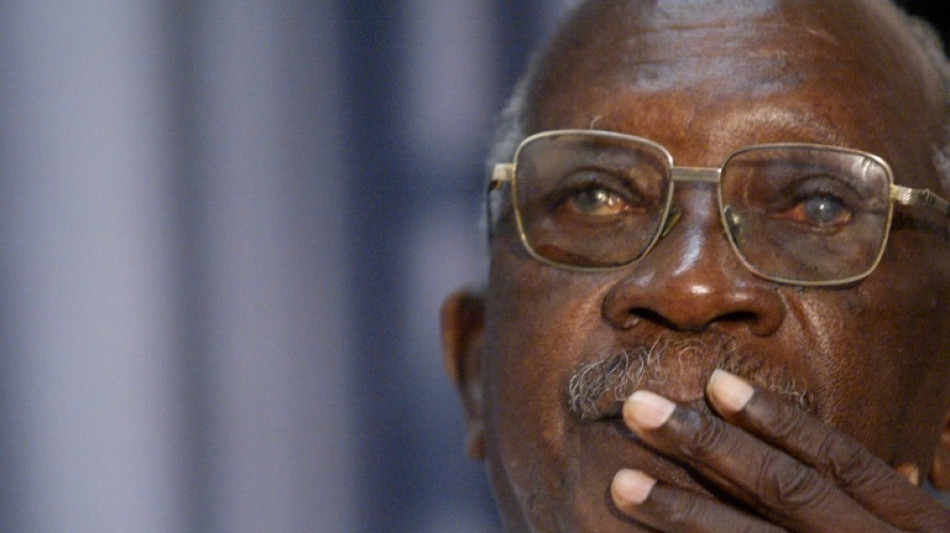

Senegalese cinemas pay tribute to Sembene on 100th anniversary
The lights fade and the screen lights up, transporting Senegalese cinemagoers back in time to the world of Ousmane Sembene, who would have been 100 this year.
To celebrate, Dakar movie theatres are showing some of the best-known works by the father of African film, including "The Money Order", "The Outsiders", "Camp de Thiaroye" and "Black Girl".
Sembene, who died in 2007 at the age of 84, is celebrated for championing social and political issues throughout his career as a writer and filmmaker.
"He showed the way to an entire generation of artists," said Senegalese film critic Baba Diop, arguing that Sembene had enabled African cinema to take the place it deserved.
Thanks to Sembene's team, scores of photos of the director have been rediscovered, pipe in mouth or peering in deep concentration through the lens of his camera.
The African cinema archive fund ASM is now digitalising these old negatives and is due to exhibit them in Burkina Faso, France and Italy.
- 'African chutzpah -
"He wanted to make films with Africans for Africans. For me, he is the epitome of African chutzpah," said the fund's coordinator Katlyn Liliou.
The previously unseen photos feature in a new book on Sembene published this year, alongside interviews with his family and colleagues.
"Ousmane Sembene: the Founding Father" paints a portrait of the activist and his legacy, a man who inspired a generation of filmmakers, writers and artists.
"He was in the army, he was a builder, a docker, a trade unionist, a writer and a film director. That's perseverance," the artist Cheikh Ndiaye told AFP.
Ndiaye's current exhibition in Dakar includes paintings of the capital's former cinemas, where people came not just to be entertained but to learn what social and political justice meant and how to get it.
Its title, "Evening class", is a nod to Sembene, who saw films as a way of passing on knowledge in the African oral tradition.
- Unnoticed? -
Like Ndiaye, Clarence Thomas Delgado, a friend and senior assistant to Sembene, remembers his boss as a fervent advocate of social justice and human dignity.
"He wanted to criticise a long list of things in each of his films. I told him to choose," Delgado grinned.
Colleagues remember Sembene as funny and hard-working, and a taskmaster on set.
"Either you were up to the job or you got thrown out," said Makhete Diallo, another of his assistants.
Despite Sembene's national and international renown, friends and family alike complain that successive Senegalese governments have failed to afford him the recognition he deserves.
There is no statue to the filmmaker in his home country and no streets are named after him.
"How come the 100th anniversary of the birth... is going unnoticed?" said political commentator Alioune Tine.
"Sembene is our Victor Hugo, our Godard," he said.
P.Walsh--MP




